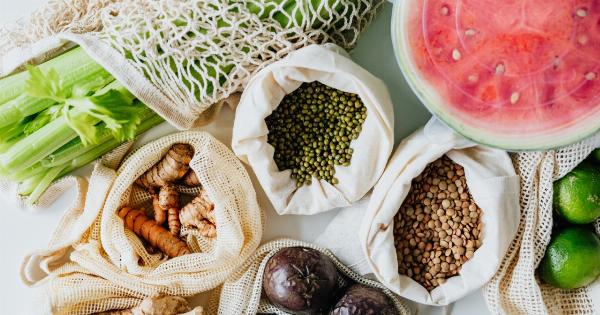Do you often find yourself throwing away food leftovers? The food waste crisis is a major concern globally, not only because it causes unnecessary financial loss, but also because it contributes to greenhouse gas emissions.
The good news is that there are smart food tips that you can use to prevent wasting leftovers.
1. Plan your meals in advance
One of the best ways to prevent food waste is to plan your meals in advance. Create a weekly meal plan and shopping list, so you know exactly what ingredients you need and how much you should buy.
This will help you buy only what you need and avoid overbuying that often leads to food waste.
2. Store leftovers properly
Most leftovers can be stored in airtight containers in the fridge. However, it’s important to make sure that they are stored properly to prevent spoilage. For example, cooked meat should be refrigerated within two hours of cooking.
Store leftovers in the front of your fridge, so you don’t forget about them.
3. Freeze leftovers
Freezing leftovers is an excellent way to prevent food waste and save money. Most leftovers can be frozen for up to three months. Make sure to label and date the container, so you know what’s inside and how long it’s been in the freezer.
4. Repurpose leftovers
Leftovers can be repurposed into new meals, which is not only an economical way to use them up, but also a great way to add variety to your meals. For example, leftover cooked rice can be transformed into a stir-fry or rice salad.
Leftover roast chicken can be shredded and used in sandwiches or wraps.
5. Create a leftover night
Create a leftover night once a week, where you can clean out the fridge and eat up any leftovers. This not only saves time and money, but also makes meal planning easier.
6. Use up pantry staples
Staples like canned tomatoes, beans, and pasta can often be used to create a delicious meal with leftover ingredients. Don’t throw away that half a can of tomatoes – use it to make a pasta sauce or soup.
7. Smaller portions
One way to reduce leftovers is to cook smaller portions. This is especially helpful if you’re cooking for one or two people. Use a food scale to measure ingredients accurately and avoid overbuying.
8. Donate excess food
If you find yourself with excess food that you can’t use up, consider donating it to a local food bank or soup kitchen. Not only will you be reducing food waste, but you’ll also be helping others in need.
9. Use up stale bread
Don’t throw away stale bread – use it to create delicious croutons, bread pudding, or breadcrumbs. Simply toast the bread and pulse it in a food processor to make breadcrumbs.
10. Use your creativity
Finally, use your creativity to come up with new ways to use up leftovers. You might be surprised at how many new dishes you can create with a little bit of imagination.
Conclusion
Smart food tips can help prevent food waste and save you money in the process. By planning your meals in advance, storing leftovers properly, and repurposing them in creative ways, you can reduce your carbon footprint and help protect the planet.





























